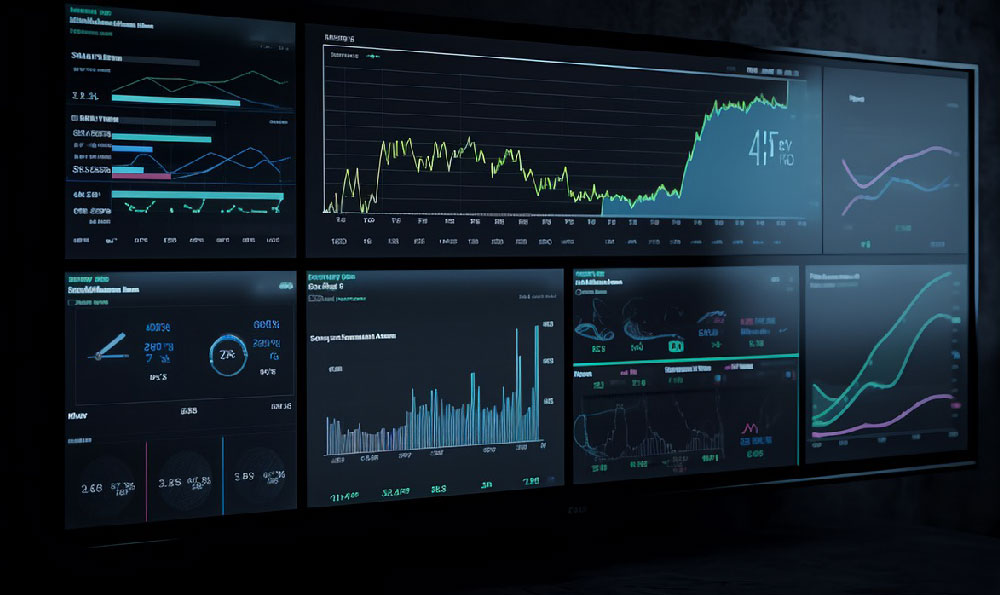How to Recycle for Profit? What's the Easiest Way to Earn by Recycling?
Okay, I understand. Here's an article based on the title "How to Recycle for Profit? What's the Easiest Way to Earn by Recycling?", focusing on the various ways individuals and small businesses can leverage recycling for financial gain, while avoiding an overly structured, point-by-point format.
Turning trash into treasure – the allure of profiting from recycling has captured the attention of individuals and entrepreneurs alike. While visions of overflowing landfills and environmental responsibility often dominate the narrative, the financial incentives are equally compelling. However, separating the genuine opportunities from the hype requires a practical understanding of the recycling landscape. The core principle hinges on identifying materials with intrinsic value and efficiently connecting them to markets willing to pay for them. The 'easiest' way depends largely on your resources, available time, and local infrastructure.
One entry point lies in focusing on high-value materials. Scrap metal, particularly aluminum, copper, and brass, consistently command strong prices due to their recyclability and global demand. The ease of collection varies; Aluminum cans are widely accessible through individual effort and community collection programs. Copper, often found in discarded electronics and plumbing, might require more specialized knowledge and tools for extraction. Similarly, brass fittings and fixtures from renovations or demolitions can be a lucrative source. The key is to stay updated on current metal prices (easily found online) and build relationships with local scrap yards who offer competitive rates. Safety precautions are paramount when handling scrap metal, especially when dealing with potentially hazardous materials or engaging in demolition work.

Another avenue to explore is electronics recycling, or e-waste. Electronic devices contain precious metals like gold, silver, and palladium, although extracting them safely and legally requires specialized equipment and environmental permits that are usually beyond the scope of individual recyclers. However, many electronics contain components that can be disassembled and resold as parts. Functioning hard drives, memory modules, and even screens can find new life in the secondary market. Refurbishing and reselling entire devices is an option for those with technical skills, but it demands an investment in testing equipment, cleaning supplies, and marketing efforts. Responsible e-waste disposal is crucial, as improper handling can lead to severe environmental damage. Certified e-waste recyclers are the best option for devices you can’t reuse or resell yourself, and they may even offer a small payment for certain items.
Moving beyond metals and electronics, consider the potential of plastics. Different types of plastic have varying recyclability rates and market values. PET (polyethylene terephthalate), commonly used for water bottles, and HDPE (high-density polyethylene), found in milk jugs and detergent bottles, are generally easier to recycle and fetch a better price. Sorting plastics correctly is crucial, as contamination can render entire batches unusable. Collaborating with local recycling centers or waste management companies can provide insights into their specific requirements and the types of plastics they accept.
The "easiest" approach often involves leveraging existing infrastructure and minimizing upfront investment. Participating in municipal recycling programs is a good starting point, even if the financial returns are indirect (e.g., reduced landfill fees or community benefits). However, supplementing this with targeted collection efforts can boost your earnings. For instance, focusing on collecting aluminum cans at community events or partnering with local businesses to collect their cardboard waste can generate a steady stream of recyclable materials.
Beyond collecting and sorting, consider the value-added potential of upcycling. Upcycling transforms waste materials into new products with higher value. Old tires can be transformed into planters or furniture, glass bottles can be repurposed into decorative items, and fabric scraps can be sewn into quilts or clothing. Upcycling requires creativity and craftsmanship, but it can command significantly higher prices than simply selling raw recyclable materials. Online marketplaces like Etsy provide platforms for showcasing and selling upcycled creations.
Furthermore, establishing a niche recycling service can differentiate you from competitors. Specializing in recycling specific types of waste, such as construction debris or industrial plastics, can attract clients who are willing to pay a premium for responsible disposal solutions. This often necessitates investing in specialized equipment and obtaining the necessary permits, but it can be a highly profitable venture.
Community engagement is also vital for success. Educating others about the importance of recycling and promoting responsible waste management practices can create a more supportive environment for your recycling efforts. Organizing community clean-up events, partnering with local schools, and offering recycling workshops can raise awareness and generate goodwill.
In conclusion, earning from recycling involves a combination of identifying valuable materials, efficient collection and sorting, strategic marketing, and a commitment to responsible environmental practices. The "easiest" path depends on your individual circumstances, but focusing on high-value materials, leveraging existing infrastructure, and exploring value-added opportunities like upcycling can significantly enhance your profitability. Continuous learning and adaptation are essential, as recycling markets and technologies are constantly evolving. The reward extends beyond financial gain; contributing to a more sustainable future is a worthwhile investment in itself.















